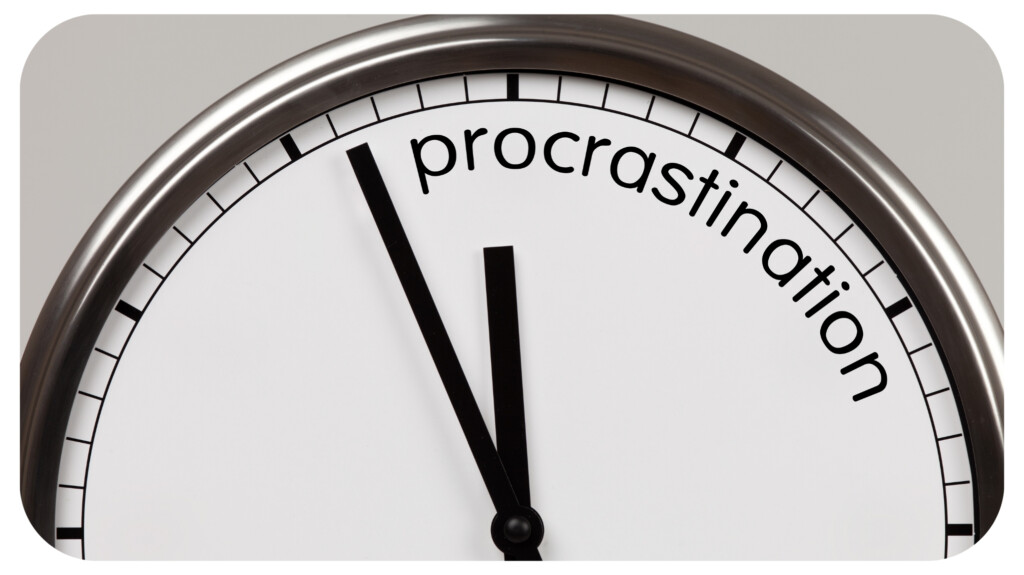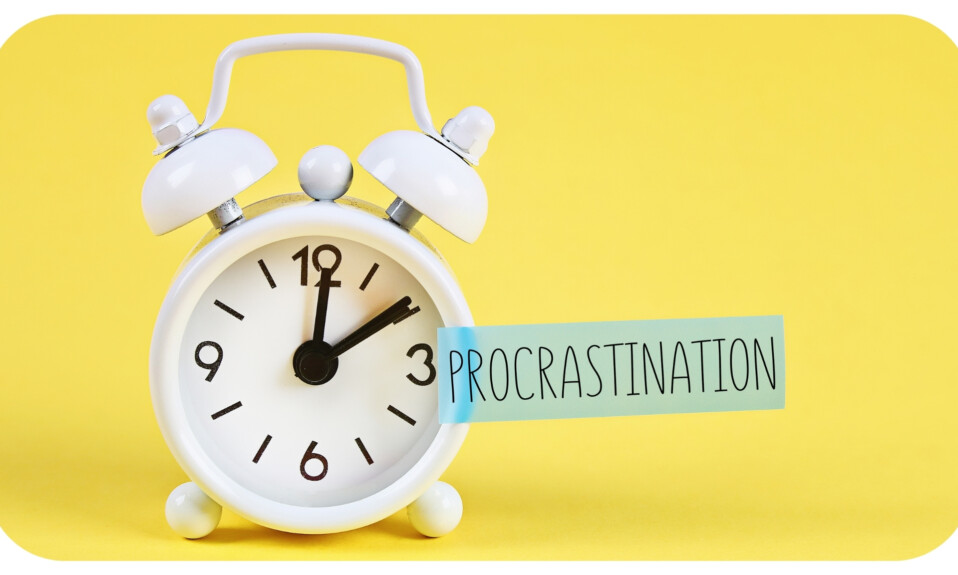Procrastination can be perceived both positively and negatively, depending on context and outcome.
In some instances, delaying tasks can provide space for creative thinking and better decision-making. It can serve as a mental break, preventing burnout and fostering a more balanced approach to work. However, chronic procrastination often leads to missed deadlines, increased stress, and a decrease in overall productivity. It can hinder personal growth and achievement by delaying progress towards goals.
While occasional procrastination may offer short-term relief, habitual delay can become a detrimental habit. Thus, it’s essential to strike a balance, utilizing procrastination sparingly as a tool for rejuvenation while maintaining discipline to ensure responsibilities are met in a timely manner which is why it is essential to know how to overcome procrastination.
Ultimately, the key lies in understanding when procrastination enhances productivity and when it impedes it, striving for a healthy equilibrium between action and relaxation. But, as procrastination maintains a consistent repo of affecting productivity as well as mental health well-being, it become important to deal with procrastination effectively.
Procrastination in Simple Words
Procrastination is when you delay doing something you need to do. Instead of starting right away, you might put it off for later, often because you feel overwhelmed, unmotivated, or unsure where to begin. While procrastination can offer temporary relief from stress, it can also lead to increased pressure as deadlines approach. It can result in unfinished tasks, missed opportunities, and feelings of guilt or regret. Overcoming procrastination involves recognizing it, breaking tasks into smaller steps, setting deadlines, and finding strategies to stay focused and motivated. It’s about taking action now rather than waiting until later.

How procrastination affects productivity and work efficiency?
Procrastination can significantly impact productivity and work efficiency in several ways. Firstly, it often leads to delayed or missed deadlines, causing stress and potentially compromising the quality of work. Secondly, procrastination can create a cycle of rushed or last-minute efforts, resulting in subpar outcomes. Thirdly, it can contribute to a lack of time management skills and poor prioritization, leading to inefficiencies in task completion. Additionally, procrastination can increase distractions and reduce focus, prolonging the time needed to accomplish tasks. Overall, by delaying action and prolonging decision-making processes, procrastination undermines productivity and work efficiency, ultimately hindering personal and professional success.
Does procrastination adversely affect mental health?
Yes! Procrastination can have several adverse effects on mental health. It often leads to increased stress and anxiety as deadlines approach, causing a constant cycle of worry and pressure. Hence before knowing how to overcome procrastination, here are the ways how procrastination adversely affect mental health:
- Increased Stress and Anxiety:
- Procrastination often leads to heightened stress and anxiety as deadlines approach.
- The pressure of impending tasks can create a constant cycle of worry and tension.
- Decreased Self-Esteem and Confidence:
- Leaving tasks unfinished or completing them hastily can erode self-esteem and confidence.
- Individuals may doubt their abilities and feel inadequate due to procrastination habits.
- Feelings of Guilt and Shame:
- Procrastination often triggers feelings of guilt, shame, and regret.
- Individuals may feel bad about themselves for not taking action sooner, leading to negative emotions.
- Contribution to Depression:
- Chronic procrastination can contribute to feelings of depression.
- Overwhelm from delayed tasks and a sense of inability to cope can worsen depressive symptoms.
- Sense of Stagnation and Unfulfillment:
- Procrastination can lead to a sense of being stuck or unfulfilled.
- Delaying important tasks can hinder personal growth and satisfaction, perpetuating negative feelings.
Overall, procrastination can significantly impact mental health by increasing stress, reducing self-esteem, triggering negative emotions, worsening depression, and hindering personal fulfillment.
Recommended: Best Ways to Improve Quality of Life

How to overcome procrastination habit?
Procrastination is a habit, if we talk about the nature of it. Once it is infested within one’s mind, the person would commit it out of laziness. Hence, dealing with procrastination means breaking this habit.
Here are some effective and easy ways to know how to overcome the habit of procrastination:
- Break Tasks into Smaller Steps:
- Divide large tasks into smaller, manageable steps to make them less intimidating.
- Focus on completing one step at a time, which can make progress feel more achievable.
- Set Specific Goals and Deadlines:
- Establish clear, specific goals for each task.
- Set realistic deadlines to create a sense of urgency and accountability.
- Use Time Management Techniques:
- Utilize techniques such as the Pomodoro Technique (working in focused intervals with short breaks) to maintain focus and productivity.
- Prioritize tasks based on importance and urgency using methods like the Eisenhower Matrix.
- Eliminate Distractions:
- Identify and remove potential distractions from your workspace.
- Consider using tools or apps to block distracting websites or notifications during work periods.
- Find Your Motivation:
- Connect tasks to your larger goals or values to increase intrinsic motivation.
- Reward yourself for completing tasks to reinforce positive behaviors.
- Start with the Hardest Task:
- Begin your day by tackling the most challenging task first when your energy and focus are highest.
- Once the hardest task is completed, the rest of your tasks may seem more manageable.
- Practice Self-Compassion:
- Be kind to yourself when facing procrastination tendencies.
- Recognize that everyone procrastinates at times and focus on making progress rather than perfection.
- Seek Accountability and Support:
- Share your goals and progress with a friend, colleague, or mentor who can offer support and accountability.
- Consider joining a study group or productivity-focused community for additional motivation.
- Reflect and Learn:
- Regularly reflect on your procrastination habits and identify patterns or triggers.
- Learn from past experiences to develop strategies for overcoming procrastination in the future that is one of the best ways, how to overcome procrastination.
- Start Today:
- Avoid waiting for the “perfect” moment to start.
- Begin taking small steps towards your goals today to build momentum and break the cycle of procrastination.
Recommended: Effective Strategies to Calm Down Your Restless Mind











